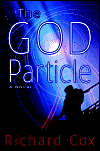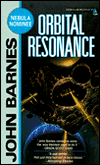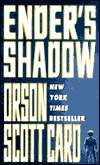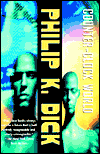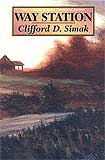
Way Station, by Clifford D. Simak
Book Review by Paul Weiss
Enoch Wallace is 124 years old, the last survivor of the Civil War, living as a recluse in the woods of southwest Wisconsin. For reasons of their own, aliens have selected Enoch to run an inter-stellar way station, a hub of their galactic transportation network that enables aliens from planets across the galaxy to travel instantaneously from one star system to another. Because the aliens have decided that mankind and earth are not yet ready for membership in this galactic federation, Enoch must labour in splendid isolation and keep the station's secret to himself. Inevitably, Wallace's astonishing longevity attracts notice and the US government begins to investigate both Wallace and the odd happenings at his house in the woods.
When the investigating agent inadvertently interferes with alien property, the aliens (whose political alliances are also uncharacteristically strained) threaten retribution and removal of the way station from earth entirely. With the aid of alien science and mathematics, Wallace now believes the world is headed unavoidably for self-annihilation in a nuclear war that will destroy humanity for centuries to come. Despite his obvious desire for a union between mankind and the alien races he has come to know and respect, Wallace is left with what amounts to an impossible Hobson's choice - abandon humanity, join the aliens in their travels across the galaxy and man a way-station elsewhere; or bid farewell to the aliens and toss in his lot with the human species that he is convinced is destined for self-destruction.
In many ways, "Way Station" is a typical Simak novel, quiet and soft in a comfortably low key character and idea-driven pastoral style. One might even go so far as to say it hovers on the edge of fantasy or mysticism as it explores the idea of humanity's reaction to other sentience in the universe or other more difficult ideas such as what might form the basis for an alien "religion". But, in this very short novel (perhaps typical of the classic sci-fi era), Simak also explores some harder sci-fi ideas such as teleportation, holograph technology, the form that sentient aliens may take and the construction of alien language.
The intensely emotional happy ending, comfortably warm and fuzzy is probably a reflection of Simak's personal optimism (or at least hopes) for the future of man and Earth as we evolve in the years to come. A thoroughly enjoyable must read for any lover of classic sci-fi.
|
Click here to buy Way Station, by Clifford D. Simak on Amazon
|
Way Station, by Clifford D. Simak on Amazon

| More Books You Might Like |
| Comments on Way Station, by Clifford D. Simak |
| There are no comments on this book. |
